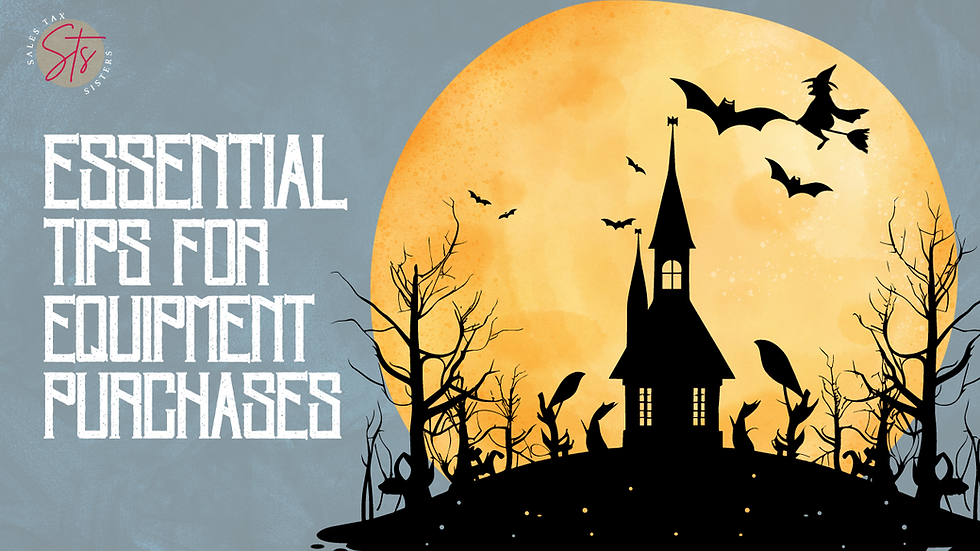A Guide to Exemption Certificates: What You Need to Know
- stephanie42524
- May 20, 2024
- 2 min read
Updated: Jun 20, 2024
Updated: May 20, 2024 Here is a simple list of things every business owner should know about exemption certificates and tax exempt sales.
Key Takeaways:
Tax exempt sales are a part of almost every business. There are multiple reasons why sales may be exempt from sales tax. It could be that what is being sold is not a taxable item or a taxable service. The customer may be a tax-exempt entity, a manufacturer, a retailer, reseller, or any other business that have sales tax exemptions that are applicable. The items could be shipped to a location where the business is not required to collect sales and use tax.
Make sure that all documentation relating to tax exempt sales is retained. That means obtaining a properly completed certificate within the applicable statutory guidelines where business is conducted. (Those guidelines can vary from jurisdiction to jurisdiction.) Also noting the “ship to” address on the invoice, retaining bill of lading, etc. to substantiate out of state sales, identifying the correct tax exempt customer on the invoice, contract, etc.
Review the certificate to make sure it is properly completed. Since forms vary across jurisdictions, it is important to know what a properly completed certificate looks like. Generally, all fields on the certificate must be complete. The taxing authority does not typically have fields on a form for decoration. Something should be in those fields. Most forms must be signed and dated. They must also make sense on their face. Which means, they must be logical.
Read the instructions on the document. And when in doubt, read the instructions. Every form should have a set of instructions. They should be a guide for you and your clients. Obtain the certificate, review them to make sure they are properly completed and retain them for at least the jurisdictions’ statute of limitations, which is typically three to four years.
Our mission to provide a resource so business owners, accountants and bookkeepers can understand sales & use tax compliance. We know that sales and use tax laws are not the easiest to understand. Our focus is on empowering you with a framework and general understanding, so you know what questions to ask and where to go to get the information you need to stay on the right side of sales and use tax compliance.







Comments